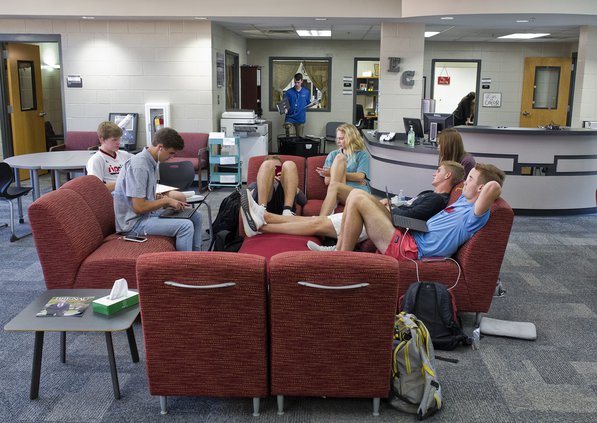ATLANTA — Georgia high school students would face a cap on the number of college courses the state would pay for under a bill that passed the state Senate on Jan. 28.
House Bill 444 passed on a 34-18 vote and now moves to the House for more debate.
Gov. Brian Kemp and a number of lawmakers say the cost of Georgia's dual enrollment program, which pays for college courses for high schoolers, is growing too fast.
Most students would be limited to 30 hours of college credit, what a student typically has to take to reach college sophomore status.
"Dual enrollment is not going away," said Senate Majority Leader Mike Dugan, a Carrollton Republican. "Dual enrollment is effective. Dual enrollment is providing opportunity for our kids and we want to make sure it's providing opportunity for our future."
But most Democrats opposed the bill, saying there are better ways to control costs than an arbitrary cap and reducing funding could burden students.
"Students who are pursuing higher education are going to end up with more debt," said Sen. Nan Orrock, an Atlanta Democrat. "Why balance a budget on the backs of striving young students?"
The state would pay for only regular academic courses in English and language arts, mathematics, science, social studies, and foreign languages. It also would pay for technical courses in one of the 17 career pathways designated by the Georgia Department of Education. The state would no longer pay for some fine arts courses or for physical education at colleges.
High school freshmen would generally be banned from dual enrollment. High school sophomores could enroll in career-technical classes but could take academic classes only if they score high on the SAT or ACT college tests.
Students could still take courses above the caps or outside those prescribed by the state if they paid themselves.
Kemp and fellow Republicans want to hold spending at its current level of $105 million a year. In 2015, when the state liberalized rules, it was spending only $23 million a year. The state already stopped paying for student fees and books to hold costs down, but the program is projected to grow to 73,000 students spending $123 million in the budget year beginning July 1 if nothing changes.
Sen. Brian Strickland, a McDonough Republican, said that without action, the state would have to impose some other kind of limits.
"If we don't have this bill, we'll have to means-test it or do a lottery system," he said.
The number of course hours taken tripled from 2013 to 2017, with much growth concentrated at technical colleges in rural and exurban areas. Beyond tuition payments to public and private colleges, Georgia also pays public colleges and high schools additional aid based on enrollment.
Sponsors say students who take dual enrollment courses accumulate 17 hours of credit, on average, by graduation. The Georgia Student Finance Commission said that in the 2019 budget year, 6,397 out of 51,298 students in the program had taken more than 30 hours of credit.
The bill could affect Georgia's 10 early college high schools, which aim for students to graduate high school with 60 hours of college credit, enough for an associate degree. Hall County Schools operates an early college program. Georgia Student Finance Commission spokesman Chris Green said those schools would have to work out other arrangements.

